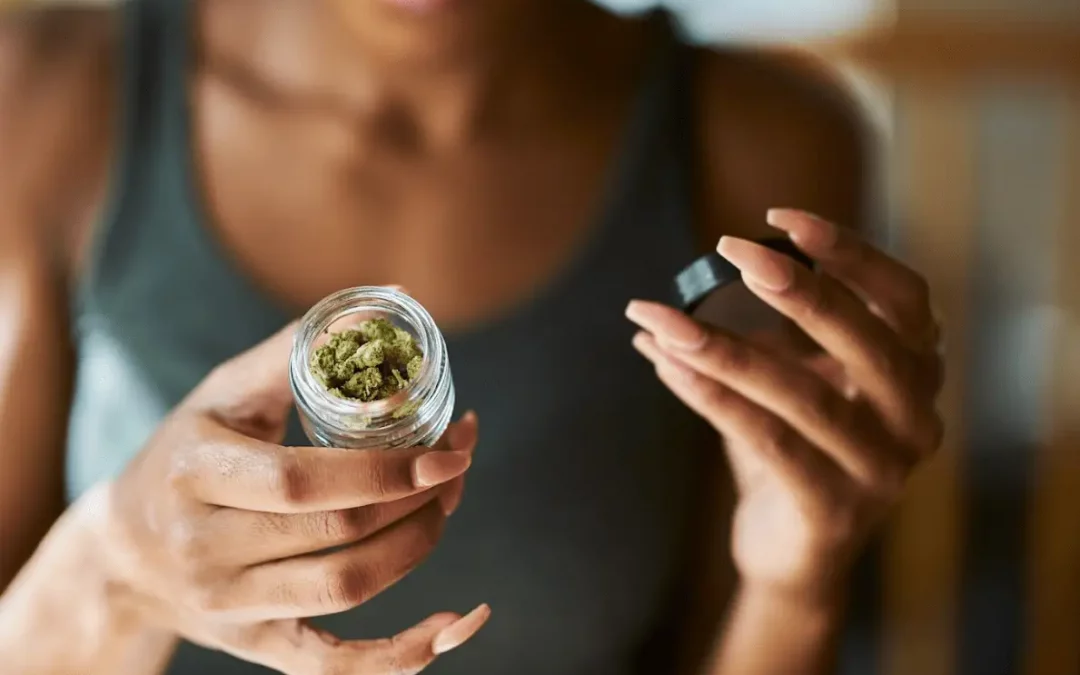How Long Does THC Stay in Your Body?
Getting high is easier than ever. However, if you need to pass a drug test, getting THC, the main psychoactive ingredient in cannabis, out of your system after smoking takes time and patience. While the effects of marijuana fade quickly, the amount of time THC remains in your system can range from a few hours to 90 days, depending on how often or how much of it has been consumed and for how long.
While there is currently no hard data that correlates body weight and the amount body fat to how long THC remains in the body, the general rule of thumb is that people with a higher percentage of body fat percentage retain THC longer.
Testing Sensitivity
The permitted level of THC allowed by the test can be a big factor. Failing a test can lead to penalties ranging from warnings to suspensions to terminations. The National Football League and the National Basketball League have increased the permitted amount of THC because so many of their players use cannabis to relieve pain. Most other workplace testing is not as sympathetic.
Types of Tests
-
Urine Tests
Urine drug tests are most commonly used in workplaces because they are non-invasive, fast and accurate. But what is a high THC level in urine? Urine drug tests detect THC metabolites in the urine sample at a concentration of 50 ng/ml (nanograms per milliliter), meaning that if the THC content in your urine is at a level or above this threshold, it will cause a positive test result. For occasional users, urine tests can detect THC in the body 36-72 hours after last use. For heavy users, the detection period will be longer.
-
Blood Tests
Blood tests are rarely used in the workplace because THC is more quickly eliminated from the bloodstream, and therefore won’t be as effective. Blood tests are more expensive and are usually used to reveal current impairment, such as DUIs. THC is detectable in blood for about 5 hours, depending on the concentration. The threshold levels of blood tests are between 1 and 5 ng/ml.
-
Saliva Tests
Saliva tests are not common, and threshold levels haven’t been established. However, THC can remain detectable in saliva for up to 72 hours, or longer with heavy use.
-
Hair Tests
Hair strand tests, by far the most accurate, are only used in exceptional situations and when long-term use of marijuana needs to be confirmed. Hair strand drug tests also don’t have established threshold levels, but they can detect THC metabolites going back as far as 90 days.
How Does Cannabis Stay in Your System?
Many states in the U.S. have lenient medical marijuana laws. The recreational use of marijuana is legal for adults over the age of 21 in 13 states, Washington, D.C., the Northern Mariana Islands and Guam. Nonetheless, the federal government continues to classify marijuana (along with heroin) as a Schedule I controlled substance
There is evidence that the length of time that marijuana remains in the body is affected by how often the person uses marijuana, how much they use, and how long they have been using. People who use marijuana regularly have reported positive drug test results after 45 days since last use. People who use more heavily have reported positive tests up to 90 days after quitting.
For example, a single dose of marijuana may be detected in your system for up to 13 days, depending on the type of test used. If you rarely smoke marijuana or only take a few hits, it will leave your system more quickly.
THC is rapidly broken down and modified into at least 80 different molecules known as metabolites. These are stored in body fat and are gradually eliminated from the body through feces and urine. The “half-life” of marijuana is how long it takes for half of the drug to be metabolized and eliminated from the bloodstream. While there are many different cannabinoids, THC is the one that most drug tests focus on.
Some THC metabolites have an elimination half-life of 20 hours whereas others are stored in body fat and have an elimination half-life of 10 to 13 days. It takes five to six half-lives for a substance to be eliminated entirely. One-time use is probably not detectable after five to eight days.
What Factors Impact How Long Marijuana Stays In Your System?
The length of time marijuana remains in your body depends on many different factors, including frequency of use, body mass, metabolism, sex and hydration levels.
Blood: Up to a few hours
Urine: From 13 (for single use) to 90 days (for heavy use)
Saliva: Up to a few hours
Hair: Up to 90 days
Blood and Saliva
Blood tests for marijuana are rarely used. The exceptions are in the case of automobile accidents and some roadside sobriety checkpoints. Blood or saliva tests can show current intoxication. However, unlike blood concentration tests, they do not indicate a level of intoxication or impairment.
Hair
Daily or near-daily cannabis consumption is most likely, but not always, detectable by a hair test up to three months later. However, the hair test is often not able to detect infrequent cannabis use or determine the amount of cannabis used.
Urine
Urine tests for marijuana metabolites also only show recent marijuana use, not current intoxication or impairment. This is because of the time required between use and your body breaking down THC into the metabolites that are eliminated in the urine. Because many employers have a zero-tolerance for drug use, most workplaces use urine tests to detect recent use of drugs.
Gender
Women often metabolize THC at a slightly slower rate since they tend to have higher levels of body fat than men.
Metabolism
The faster your metabolism, which can be impacted by age, physical activity and certain health conditions, the faster marijuana will exit your body.
Body Mass Index (BMI)
THC metabolites can be stored in the fat cells in your body, so the higher your percentage of body fat (BMI), the slower you’ll likely be able to metabolize and excrete THC and other cannabinoids.
However, BMI is a dated, biased measure that doesn’t account for several factors, such as body composition, ethnicity, race, gender and age. Despite these flaws, BMI is still widely used today in the medical community as an inexpensive and quick method for analyzing potential health status and outcomes.
Hydration
When you’re dehydrated, you’ll have a higher concentration of THC in the body. However, simply drinking lots of water won’t enable you to pass a drug test. Instead, it will dilute it and you’ll likely need to retake the test.
Smoking vs. Vaping vs. Edibles
The method of use also impacts the detection time. If marijuana is smoked or vaped, the THC levels in the body will drop faster than if you ingest it. Edibles take longer to break down in the body and leave your system.
The Workplace
Many employers have a workplace drug policy that includes random drug testing for current employees and routine testing for all new job applicants. If you are required to take a urine test on short notice for employment or other purposes and you have recently smoked marijuana, you are probably going to fail the test. This is particularly true if your use is regular or heavy.
In some cases, you can be fired for failing a drug test even in states where the recreational use of marijuana has been legalized. The only completely reliable way of passing the test is to stop smoking or ingesting marijuana or cannabis products.
Although you will see many tips on how to beat a marijuana drug test, most have proven to be urban legends. Washing your system out entails drinking a lot of water or liquids and urinating several times before the test, then taking vitamin B-12 to add color back to the urine. Although this may lower the percentage of THC found in the urine by diluting it, this will not totally eliminate THC metabolites.
Using a detoxification product that naturally accelerates your body’s normal detoxification systems can allow you to cleanse your blood and urine of toxins like THC in roughly 3 to 6 days depending on how many toxins are stored in your body. There are many on the market and not all are equally effective.
Some people also will try to exercise before the test, but that can backfire, depending on the test, as it can release stored THC from fat into the blood, according to one study in the journal Drug and Alcohol Dependence.
Some companies sell various substances and herbal teas that are allegedly capable of “cleaning” the body’s system of traces of marijuana. There is little evidence that any of them work. The caveat is that most of them must be used over an extended period, during which the body would naturally eliminate THC anyway.
False Positives in Tests
Workplace testing for marijuana may entail first screening the sample with an immunoassay test, known as the EMIT or RIA. If positive results are returned, the sample is again screened with a gas chromatograph-mass spectrometer (GCMS), which is much more accurate and, therefore, false positives are rare.
No known substances would cause a marijuana urine test to return a false positive.
At one time, ibuprofen such as Advil, Motrin, and Nuprin would cause false marijuana positives. But today’s tests have been adjusted to eliminate that problem.
In places where marijuana is legal, roadside blood tests have been known to show some false positives in people who had been legally consuming cannabis but were not actively intoxicated at the time of the test. A 2016 report detailed a Belgian policy of testing oral fluid at the roadside and found it decreased false positives.
Tampering With the Test
This involves adding something to the urine to contaminate the sample. There are tales of using Visine, bleach, salt or detergent to the urine sample, but these items are easily detected by laboratory analysis. Several commercial products are sold as urine test adulterants, but none are 100% foolproof. All of them can be detected in the lab if a separate test is run for them.
Does CBD Show Up on a Drug Test?
Because CBD doesn’t cause intoxicating effects and is legal in the U.S., drug tests rarely screen for it. However, if you use CBD, you may get a positive drug test when consuming a product with improper labeling, or a product that has been mixed intentionally or unintentionally with THC. Always research CBD products before you buy and always choose a reputable brand.
To minimize the chances of getting a positive test from consuming CBD products, opt for products that contain pure CBD, also known as CBD isolate. These products are 99% pure extracts, and the production process removes all traces of THC and other plant compounds. Other CBD products are made from full-spectrum extract which contains 0.3% THC or less and consuming these products may result in a positive drug test, but only if there’s more THC than allowed.


